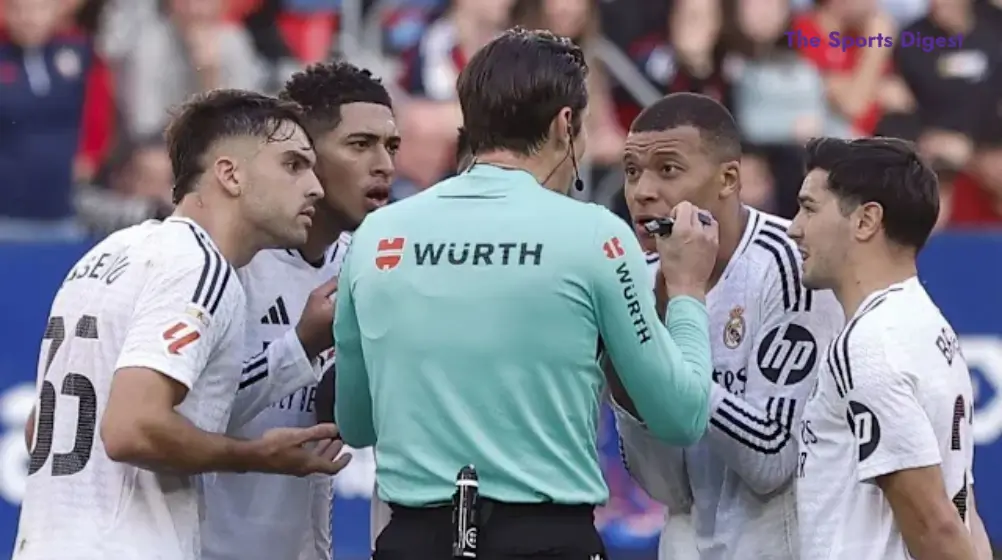System Reform: LaLiga Refereeing Proposal
This System Reform aims to bring a transformative change to the refereeing system by shifting the focus entirely to sporting merit and actual performance, rather than regional considerations. By eliminating territorial biases in referee selection and assignment, the reform seeks to create a fairer, more transparent officiating process that upholds the integrity of the game. This will not only ensure equal opportunities for referees based on their competence but also enhance the credibility of officiating in LaLiga and other domestic tournaments. Ultimately, these changes aim to foster a more just and professional refereeing environment that benefits clubs, players, and fans alike.
Table of Contents
Key Structural Changes
Elimination of Territorial Criteria
- Remove geographic restrictions in referee selection, basing appointments solely on performance and competence.
- Strengthen the principle of sporting merit as the primary criterion for referee assignments.
- Establish mutual agreement between the Spanish Football Federation (RFEF) and key stakeholders, including LaLiga and clubs, on the necessity of these changes to ensure fairness in competitions.
Referee Selection Principles
- Implement a policy based on evaluating individual referees purely on their quality and performance, without territorial considerations.
- Allow multiple referees from the same autonomous community to officiate in top-tier leagues, provided they meet the required performance standards.
- Gain the support of RFEF President Rafael Louzán for a merit-based selection approach, facilitating smoother implementation.
Matchday Referee Designation Reforms
Territorial Restrictions Reassessment
- Explore the removal of rules preventing referees from officiating matches in their home regions, aiming for a more balanced and meritocratic system.
- Continue discussions regarding maintaining certain restrictions for high-stakes matches, including:
- Relegation-deciding matches.
- Games affecting European qualification.
- Title-deciding fixtures or key championship battles.
Bias Mitigation Strategies
- LaLiga’s proposed alternative: a draw-based system Reform with corrective factors to ensure fair referee distribution.
- Prevent referees from frequently officiating matches involving the same teams, reducing the risk of perceived favoritism.
- Address concerns about potential regional bias by implementing corrective mechanisms in referee assignments.
Refereeing Governance Transformation
Technical Committee of Referees (CTA) Restructuring
- Study and adopt international models of refereeing management to modernize the system.
- Consider transforming the CTA into an independent, autonomous entity to ensure greater impartiality in decision-making.
- Explore the possibility of converting the committee into a commercially structured body, similar to models seen in other football leagues.
Preferred Governance Models
- MLS Model (Preferred by LaLiga and Real Madrid):
- A structure that integrates refereeing expertise with business management, ensuring a well-balanced and effective leadership model.
- Alternative International Models Under Review:
- Premier League
- Bundesliga
- Serie A
- A comparative analysis of these models is underway to determine the most suitable approach for Spanish football.
Implementation Considerations
A. Legal Compliance
- Ensure that the proposed System reforms do not conflict with the existing Spanish Sports Law.
- Limit modifications to the coordination agreement between RFEF and LaLiga, making the changes easier to implement.
- Increase the feasibility of these System reforms by securing alignment between various governing bodies to prevent legal or administrative conflicts.
Anticipated Outcomes
- A more transparent referee selection process: Improved mechanisms for referee appointments will ensure greater fairness and clarity.
- Reduced regional favoritism: Eliminating territorial factors in referee selection will enhance credibility and neutrality.
- Higher professional standards for officiating: The reforms will lead to improved referee performance and decision-making quality.
- Increased accountability in referee performance: A stricter monitoring and evaluation system Reform will ensure higher refereeing standards across all competitions.
Conclusion
This System Reform represents a fundamental shift in Spanish refereeing, focusing entirely on merit and performance. By eliminating territorial biases, it aims to enhance the credibility of officiating and ensure fair competition. If effectively implemented, these changes will lead to overall improvements in refereeing quality and contribute to the long-term development of Spanish football.
Have you ever read an article like this?
There are no reviews yet. Be the first one to write one.






